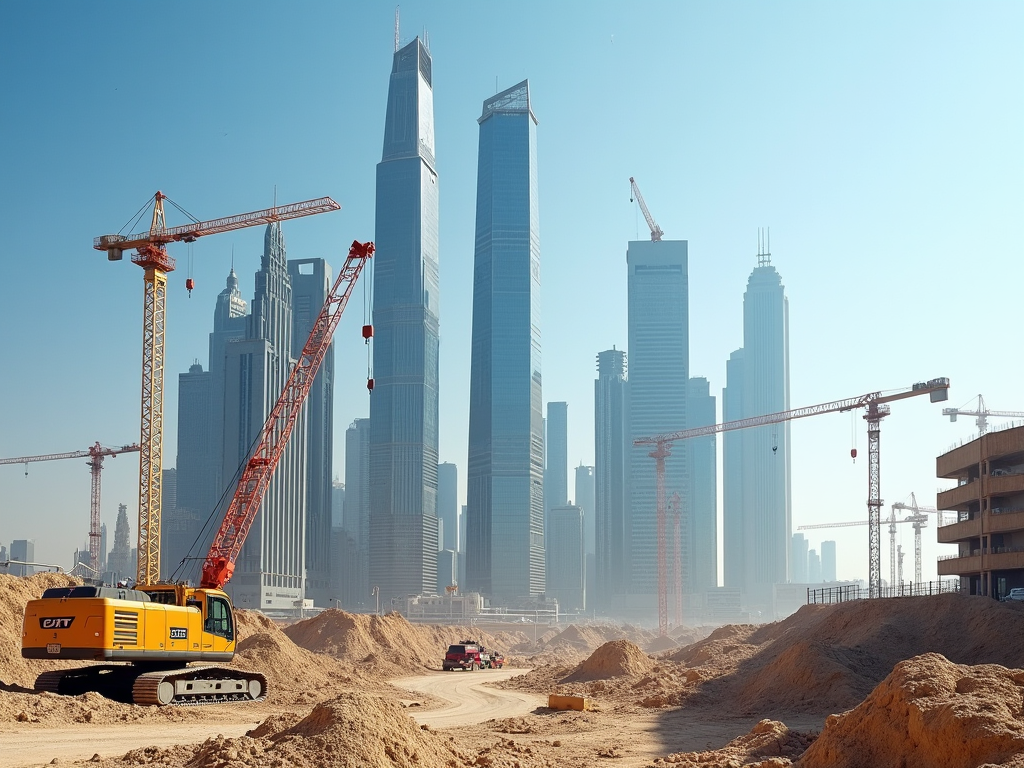Starting a construction company in Dubai, UAE, is a promising venture due to the booming real estate and infrastructure sector. However, navigating the landscape of requirements and approvals can be complex. This article will elucidate the critical steps and procedures involved in forming a construction company in Dubai, ensuring compliance with local laws and regulations.
Understanding the Legal Framework

Before embarking on establishing a construction company, it is crucial to understand the legal landscape governing business operations in Dubai. The Dubai Economic Department (DED) regulates business licenses, while the Dubai Municipality oversees construction-related permits. Compliance with these authorities safeguards your company against legal complications and operational setbacks. It is also essential to familiarize yourself with the UAE Commercial Companies Law, which outlines various business structures, including Limited Liability Companies (LLC) and sole proprietorships. Depending on the ownership structure, different laws may apply, impacting shareholders and liabilities. Thus, understanding these elements is fundamental to your business’s success.
Steps to Register Your Construction Company

Establishing a construction company in Dubai involves several steps. Follow this streamlined process to ensure compliance:
- Choose a Company Name: The name must be unique and reflect the nature of the business.
- Select a Business Activity: Clearly define the scope of your construction services.
- Determine Company Structure: Decide whether you will form an LLC, sole proprietorship, or another structure.
- Obtain Initial Approval: Apply for initial approval from the DED, which will allow you to proceed with drafting your Memorandum of Association (MOA).
- Draft MOA: Although it is advisable to hire a legal expert, ensure the MOA covers key operational aspects of the business.
- Secure a Business License: Once all documents are in order, submit them to obtain your trade license.
Each of these steps is critical and should be undertaken carefully to ensure a smooth registration process. Failure to adhere to any particular stage could lead to delays or additional costs.
Essential Approvals and Licenses
In addition to the initial business license, construction companies must obtain various approvals from different regulatory bodies. These approvals are vital to begin construction operations legally and safely. Here is a general overview of required licenses:
- Dubai Municipality Approval: Required for all construction projects to ensure compliance with standard building codes.
- Environmental Impact Assessment (EIA): Necessary for large projects, assessing potential environmental consequences.
- Obtaining a Civil Engineer’s License: This credential is mandatory for individuals who oversee construction projects.
- Traffic Impact Assessment (TIA): May be required to evaluate the effect of traffic in the proposed project area.
- Dubai Electricity and Water Authority (DEWA) Approvals: Needed to connect your project to essential utilities.
Acquiring these approvals may take time and effort, thus planning ahead is highly advisable. Each authority has its specific requirements, and failing to meet these could halt your project’s initiation.
Establishing a construction company involves significant financial implications. A detailed business plan should include an overview of startup costs, such as licensing fees, equipment, operational expenses, and potential employee salaries. Financing avenues can include personal savings, bank loans, or venture capital, depending on your business model.
Keep in mind that costs may vary significantly according to the scale of your operations and the licensing fees stipulated by the DED and other authorities. It is wise to consult with a financial advisor familiar with UAE construction regulations for accuracy. Also, consider establishing a relationship with reliable construction suppliers to ensure that access to quality materials is secured, further mitigating costs.
Conclusion
Forming a construction company in Dubai entails navigating several layers of legal, financial, and regulatory requirements. From obtaining the necessary approvals to arranging financing, each step is critical to ensuring your company’s sustainable success. By following the outlined processes and maintaining a proactive approach to compliance, you can position your business effectively within the dynamic Dubai construction landscape.
Frequently Asked Questions
1. What is the most common business structure for a construction company in Dubai?
The most common structure is a Limited Liability Company (LLC), as it provides flexibility and limits the liability of partners.
2. How long does it take to register a construction company in Dubai?
The registration process can take anywhere from a few weeks to a few months, depending on the complexity of the approvals required.
3. Are there any specific qualifications needed to start a construction company in Dubai?
Yes, specific qualifications, including a Civil Engineer’s license for overseeing construction projects, are mandatory.
4. Do I need to be a UAE national to form a company in Dubai?
No, foreign investors can form a company, but they typically need a local sponsor for certain types of business setups.
5. What are the penalties for not complying with construction regulations in Dubai?
Non-compliance can result in heavy fines, project suspensions, or even legal actions, highlighting the importance of adhering to regulations.
